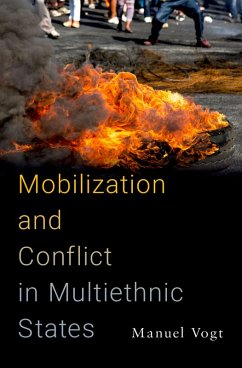Why are some multiethnic countries more prone to civil violence than others? This book examines the occurrence and forms of conflict in multiethnic states. It presents a theory that explains not only why ethnic groups rebel but also how they rebel. It shows that in extremely unequal societies, conflict typically occurs in non-violent forms because marginalized groups lack both the resources and the opportunities for violent revolt. In contrast, in more equal, but segmented multiethnic societies, violent conflict is more likely. The book traces the origins of these different types of multiethnic states to distinct experiences of colonial rule. Settler colonialism produced persistent stratification and far-reaching cultural and economic integration of the conquered groups, as, for example, in Guatemala, the United States, or Bolivia. By contrast, in decolonized states, such as Iraq, Pakistan, or Sri Lanka, in which independence led to indigenous self-rule, the colonizers' "divide and rule" policies resulted in deeply segmented post-colonial societies. Combining statistical analyses with case studies based on original field research in four different countries in Sub-Saharan Africa and Latin America, Vogt analyzes why and how colonial legacies have led to peaceful or violent ethnic movements.
Dieser Download kann aus rechtlichen Gründen nur mit Rechnungsadresse in A, B, BG, CY, CZ, D, DK, EW, E, FIN, F, GR, HR, H, IRL, I, LT, L, LR, M, NL, PL, P, R, S, SLO, SK ausgeliefert werden.


